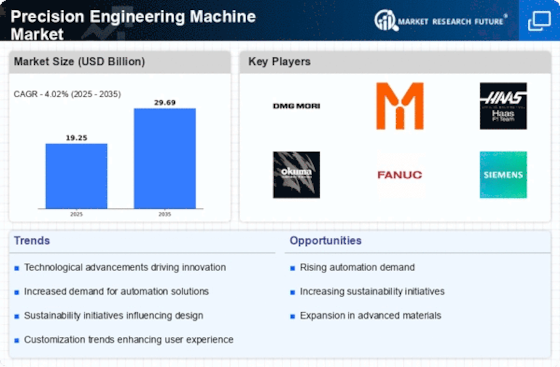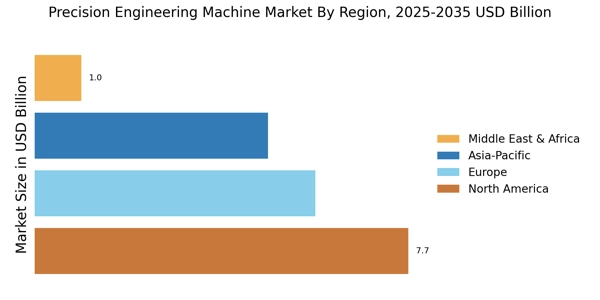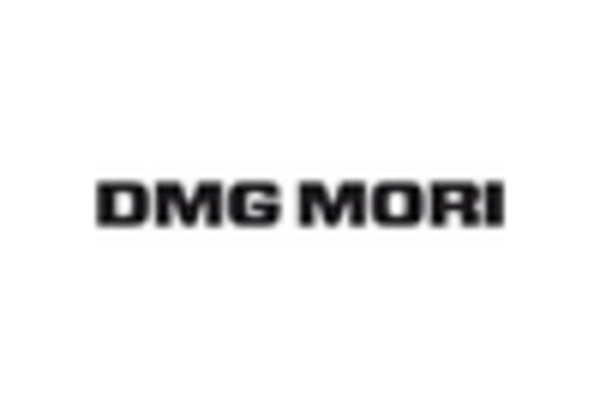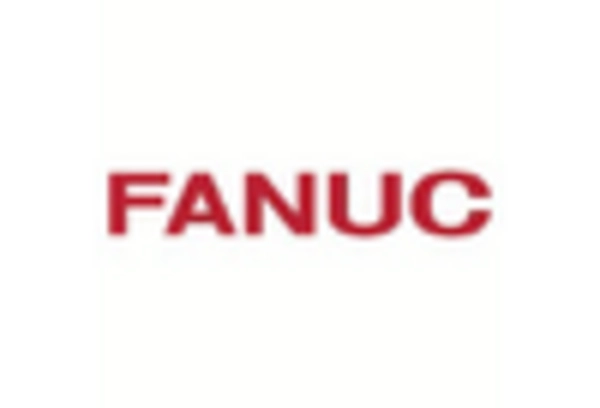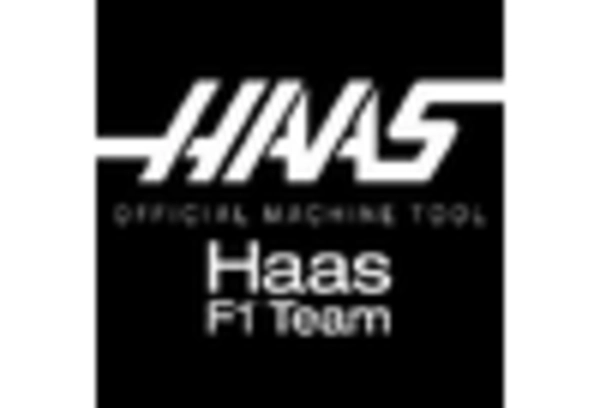Emergence of Advanced Materials
The introduction of advanced materials, such as composites and lightweight alloys, is significantly influencing the Precision Engineering Machine Market. These materials offer superior performance characteristics, including enhanced strength-to-weight ratios and improved durability. As industries increasingly adopt these materials for applications in aerospace, automotive, and other sectors, the demand for precision engineering machines capable of processing them is likely to rise. Market analysis suggests that the use of advanced materials could lead to a 15% increase in the demand for precision engineering machines over the next few years, indicating a pivotal shift in manufacturing practices within the industry.
Growth in the Renewable Energy Sector
The Precision Engineering Machine Market is witnessing growth driven by the renewable energy sector, particularly in the production of components for wind turbines and solar panels. As countries commit to reducing carbon emissions, the demand for precision-engineered parts that enhance the efficiency and reliability of renewable energy systems is on the rise. Reports indicate that investments in renewable energy technologies are expected to reach trillions of dollars in the coming years. This trend presents a substantial opportunity for the Precision Engineering Machine Market, as manufacturers adapt their capabilities to meet the specific needs of this evolving market.
Integration of Automation and Robotics
Automation and robotics are becoming increasingly integral to the Precision Engineering Machine Market. The adoption of automated systems enhances production efficiency and accuracy, reducing human error and operational costs. Recent data indicates that the market for industrial robots is expected to grow at a compound annual growth rate of around 10% over the next five years. This trend suggests that manufacturers are likely to invest in precision engineering machines that incorporate advanced automation technologies, thereby streamlining processes and improving overall productivity. The Precision Engineering Machine Market is thus poised for transformation as companies seek to leverage these innovations.
Rising Demand for Precision Components
The Precision Engineering Machine Market is experiencing a notable increase in demand for precision components across various sectors, including aerospace, automotive, and medical devices. This surge is driven by the need for high-quality, reliable parts that meet stringent regulatory standards. For instance, the aerospace sector alone is projected to require a significant increase in precision-engineered components, with estimates suggesting a growth rate of approximately 5% annually. As industries strive for enhanced performance and safety, the Precision Engineering Machine Market is positioned to benefit from this trend, as manufacturers invest in advanced machinery to meet these evolving requirements.
Focus on Quality and Compliance Standards
Quality assurance and compliance with international standards are becoming paramount in the Precision Engineering Machine Market. As industries face increasing scrutiny regarding product quality and safety, manufacturers are compelled to invest in precision engineering machines that ensure adherence to these standards. The implementation of rigorous quality control measures is expected to drive market growth, as companies seek to avoid costly recalls and reputational damage. Data suggests that the market for precision engineering machines that meet high compliance standards could expand by approximately 8% annually, reflecting the industry's commitment to quality and reliability.

